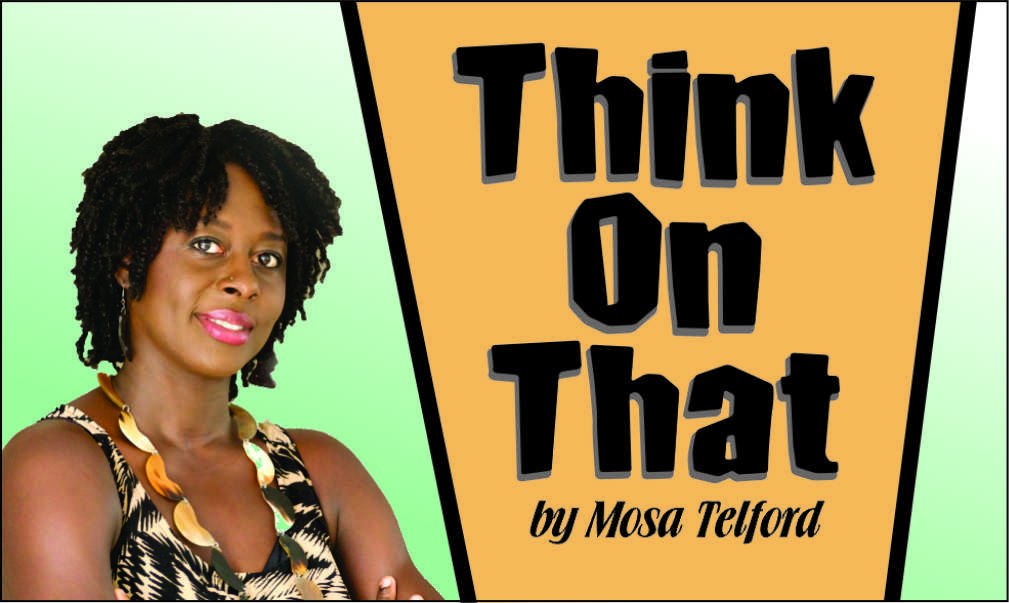
And in the world of the film the women are equal to the men. The strong female leads, who are in no way subservient, stand side by side with the men and fight for them in that imagined society. That is real in many ways because truths about history and the present reality were beautifully intertwined to create fiction that will leave a lasting impression. Many Guyanese women could find inspiration from watching the women of “Black Panther.” Every woman who has ever felt that she was not worthy, who has held her head down and walked behind the man, instead of standing beside him, who has endured abuse and accepted it as her fate, can find the heroines in the women of “Black Panther” and be motivated to find her voice and purpose.
“Black Panther” has inspired beautiful demonstrations of Black pride on a universal level. Suddenly, because of a superhero film, people were proudly expressing their Afrocentricity, sending messages throughout the planet that the time to celebrate Black excellence is here, has been always been here and will never expire. We human beings as a collective have always been great, but that Africa and her descendants have always been great is not the story that many want to be told. There have always been heroes and great leaders. Like Imhotep, who was the Father of ancient medicine, architect and builder of the Step Pyramid. He was also a philosopher, poet and author; many historians have spoken and written about him, including local author Eric Phillips in “Know Thyself A-Z.”
There is also Tata Ajache, who was a part of the famous women soldiers of the West African kingdom of Dahomey, as documented in “African Princesses” by Joyce Hansen. It is assumed that the army of women in “Black Panther” is inspired by those same women of Dahomey. And, locally, we have had heroes like Cuffy, who fought for freedom.
“Black Panther” can be seen as the beginning of a movement. It is a reminder about who we are and can become because for too long and too often the images on the screens portrayed only certain plots; to paint a people as savages, impoverished, uncivilized; and featured stories about gangsters, broken families and such.
Many of the stories have also revolved around slavery. Personally, if I never see another film based on slavery, I will be quite fine and happy. I made a choice to stop watching those years ago. Even though, one must be aware of their history, learn from their history, honour the struggles of their ancestors, that is not all one’s history is; one does not have to constantly psychologically relive the pain and struggle. One does not have to let the pain and anger of the past unceasingly consume one while stripping away the hope and promise that is there to be great today and tomorrow. The only person that is hurt when one does that is the individual. For too long, slavery has been made to seem like the totality the Black experience, when in fact it is just one snippet in the experience that dates back to the beginning of time.
“Black Panther” reminds us about what happens when there are heroes we can identify with. Heroes who look like us. How powerful it is when you can look in the mirror and see yourself as a hero. How powerful when you recognise the divine in you. The characters in “Black Panther” glowed. Not only did they radiate strength, courage and pride, but the physical appearance showed a people beautifully and wonderfully made.
As with any film, though, there have been criticisms; even from people within the Black community, who thought it was sad that a film in an imaginary society known as Wakanda is what it took for many to express Black pride on such a global level. There are those who thought the film was not that interesting or that the hero was weak and those who were unimpressed by the violence, some of it because of tribal wars. But there have always been tribal wars in Africa.
Recently, I was invited to watch a documentary, called ‘Elmina Castle and The Slave Trade,’ which was produced by a Ghanaian filmmaker by the name of Ato Ashun. It reminded me of the extent those wars played in the slave trade. Many who lost the war were enslaved. It is sad history, but it also is the truth.
Someone wrote that “Black Panther” revealed the “low consciousness” of Black people Guyana. The same grandchildren of those who lost their names; those who lost their religions and were given European versions of what God is; and who lost their tribes and tongue. Most cannot identify where their African lineage leads back to because our ancestors were turned into Johns, Harrys or Elizabeth.
“Black Panther” helps us to escape to what ‘home ‘could have been had slavery and colonialism not interrupted us.
There were many moments in the film that were very profound–so many subliminal messages. One character’s death was particularly powerful. His final words were: “Bury me in the oceans with my ancestors who jumped from the ships, because they knew that death was better than bondage.”
We honour them by commemorating the Maafa (African Holocaust). They were heroes because they refused to cross water and cease to exist.





